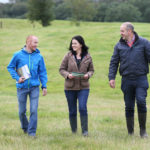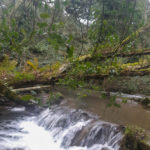Smart Farming, the resource efficiency programme run by IFA in…
EU Commission public consultation: water pollution – rules on urban wastewater treatment
Making sure that urban wastewater is clean and safe is vital for protecting public health and the environment. This key part of EU water policy is covered by the Urban Wastewater Treatment Directive. You can have your say in this consultation which is open until 21 July 2021.
This initiative will revise the Directive after a recent evaluation of it identified certain shortcomings and new societal needs that must be addressed.
The EU Commission would like to hear your views.
Through public consultations you can express your views on aspects of EU laws and policies before the Commission finalises its proposals.
All citizens and the wider community of stakeholders are welcome to express their views – more specifically those affected by the rules on urban waste water or who have an impact on urban waste water and technologies/technological development including EU Member States and their public authorities at national, regional and local level (e.g. responsible for the environment, (waste) water management and sewage sludge management), industrial/economic actors such as associations and companies (including small and medium sized enterprises), water associations at European, national and regional level, international organisations, NGOs, consumer organizations, academia, research and innovation organisations and institutes.
The questionnaire comprises both questions which do not require any technical or expert knowledge and a part targeted at experts focusing on more technical aspects of the topics/measures considered in the Directive’s revision.
Why the EU are consulting
The UWWTD was adopted 30 years ago to protect the environment from the harmful effects of the discharges of untreated waste water. The 2019 published Evaluation found that the Directive overall works well but that there are some areas that need to be improved. Also in light of the European Green Deal, the Directive needs to align with new environmental and climate ambitions. THE EU now seeks your views on how best to address the identified issues to make sure that the Directive is fit for the decades to come.
With this consultation the EU would like to hear your opinions on possible improvements of the Directive, to address issues that are currently not well covered by it and to address new issues that have arisen over the past decades and that now need to be dealt with.
Your views will feed into the impact assessment that will constitute the evidence base for any changes to the Directive.
Responding to the questionnaire
You can contribute to this consultation by filling in the online questionnaire. Further details are also available at this link:
Questionnaires are available in some or all official EU languages. You can submit your responses in any official EU language.







